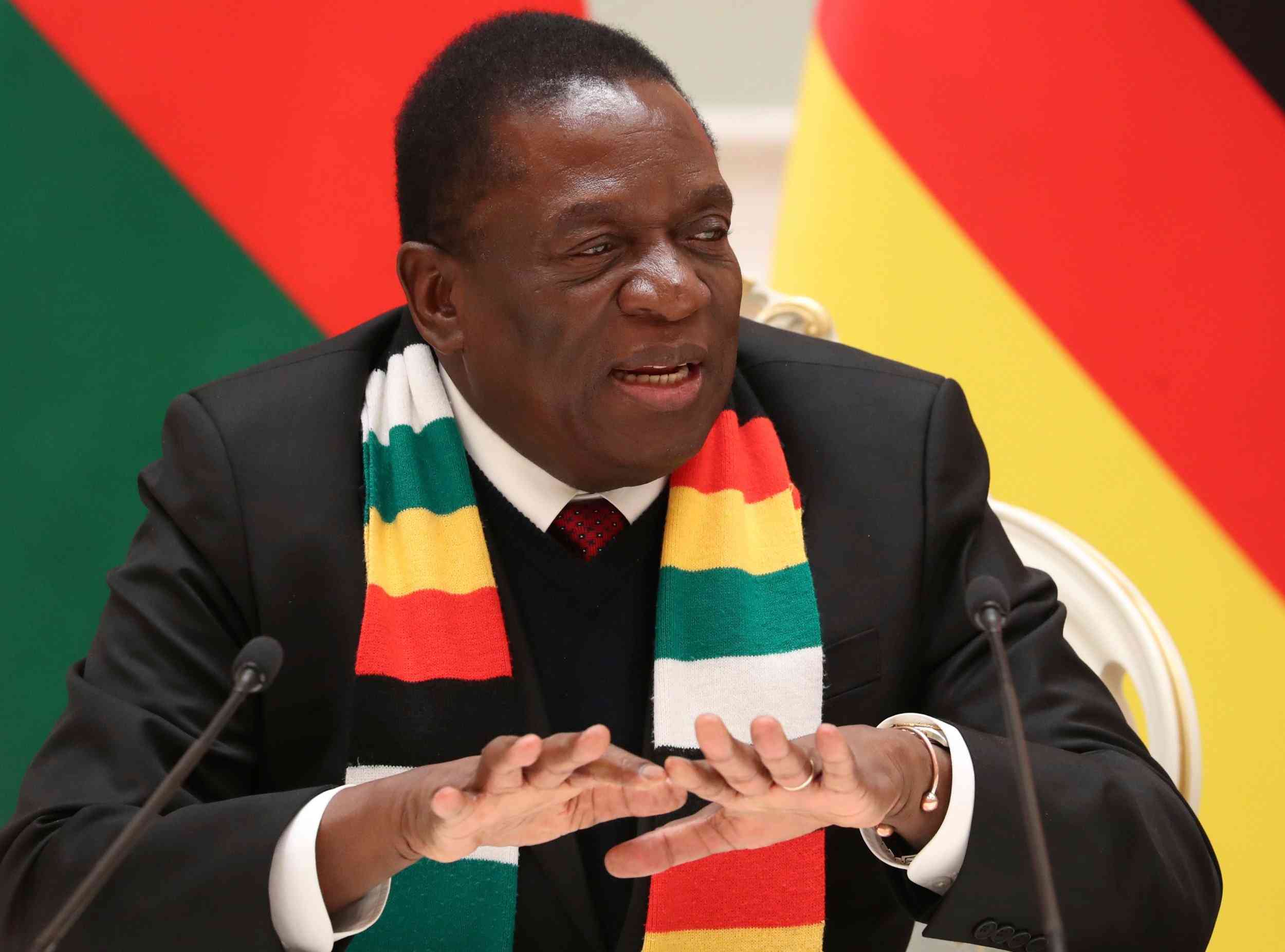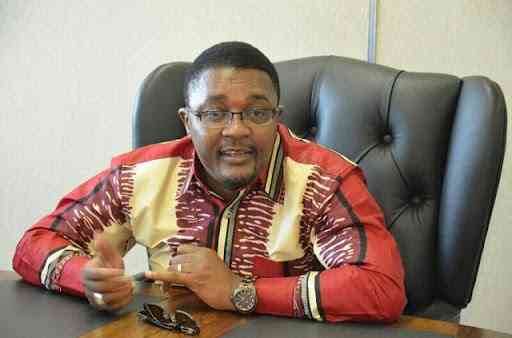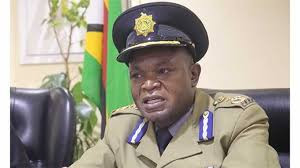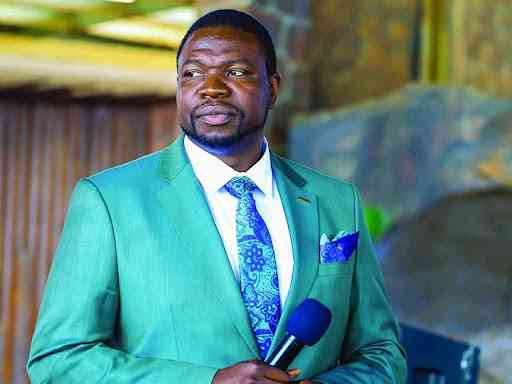
Reserve Bank of Zimbabwe governor John Mangudya says he understands why Zimbabweans are confused about the country’s currency because of the difficult economic environment over the years.
Mangudya (JM) told Alpha Media Holdings chairman Trevor Ncube (TN) on the platform In Conversation with Trevor that the Zimbabwe dollar was the country’s sole currency.
The central bank governor responded to a wide range of questions, including on the future of the local currency.
Below are excerpts from the interview.
TN: Dr, thank you so much for creating this time to be on In Conversation With Trevor.
I thought governor, we would start, we have just heard the sad news of our friend, banker and entrepreneur, Douglas Munatsi who passed away as we were preparing for this conversation.
What are your memories of him?
JM: Thank you Trevor. Indeed it is a sad loss.
- Chamisa under fire over US$120K donation
- Mavhunga puts DeMbare into Chibuku quarterfinals
- Pension funds bet on Cabora Bassa oilfields
- Councils defy govt fire tender directive
Keep Reading
For the family of Doug, our prayers and love are with his family.
It is a sad moment because we were just with him (Doug) on Friday at the official handover of the property by government to Afrimex Bank, on the corner of Herbert Chitepo Street and 7th Street (in Harare).
So you know our memories go very far with Doug, from being an astute banker to now he served in our monetary policy committee as you are aware.
A very astute business person, very responsive and indeed a person who will tell you exactly as it is. A straight talker, so to say.
TN: Absolutely a straight talker. For me, Doug was a friend, he has been a friend for over 30 years.
I have decided that we dedicate this conversation to Doug in his memory.
The amazing work he has done in the banking sector, as a professional, a patriot for that matter.
Someone, who decided to leave his comfortable life and serve the country as the first chief executive of (the Zimbabwe Investment and Development Agency (Zida). Fond memories of the man.
JM: Indeed, he was so keen to have more investors come into Zimbabwe.
His message was always to say let us not put obstacles to investors.
He was trying to ensure that Zida becomes a one-stop shop for investors, modelled along the Rwandese programme or template of which he was trying to do the best.
TN: His belief, which I bought into big time, was that a lot of us are good at criticising from the sidelines, but if the nation calls you to come and serve you cannot say ‘no I cannot serve’, because one is comfortable criticising on the sidelines.
An opportunity to serve is an opportunity for you to go and ensure your criticism was based on quality, rather than just wanting to throw stones from the sidelines.
Was that the sense that you got of him?
JM: Definitely, because you know what when he started at Zida, he always used to share some work, what we were doing here as a bank, so the relationship between what he was going to do at Zida, and also the rest of government machinery.
So, definitely yes he wanted to ensure that as Zida would walk its talk, walking the talk so to say.
He had groomed his good team there to ensure that they executed the mandate of Zida the way it was expected. He was so keen with these special economic zones.
TN: Yes.
JM: He was so keen to ensure that there were no obstacles from the exchange control perspective, so anytime we would speak to him he expected to see something that was outside of this world in terms of interference.
So yes, you are right, he came inside from our side to make sure he was doing the best of what he thought for the economy.
TN: I am pained, so we will do this show in his honour.
JM: All of us Trevor, all of us.
TN: So we are doing this show in his honour. He represents the amazing talent that this country has. Governor, we had this conversation. You were appointed in 2014, so you now have how many years before your term ends?
JM: I have got two and half years.
TN: Two and half years?
JM: Yes.
TN: When you look back at your first term and the second term, what to you is your biggest success?
JM: The first term of office, 2014 to 2019.
It was a period where Zimbabwe was using dollarisation as a means of the economic set up.
Therefore, the impact of the monetary policy was not felt much in the economy because we were using dollarisation for most of the term, 2014 to 2018.
We only removed dollarisation in 2019.
Therefore, you will find the first term of office we had deflation.
Whilst lots of people want dollarisation, but we had deflation most of the part of my first term, it only ended in 2017 after we introduced the currency of bond notes in 2016.
The whole idea there was to ensure that we pump up the economy, we inject some liquidity in the economy, that is what happened, of which by that time the first term was so different from the second term.
The second term is basically where we have our own local currency as our functional currency and, therefore, the impact of the monetary policy and its transmission are now being felt in the economy.
Therefore, our success during this second term is basically that we have managed to reduce inflation from the 87% in July 2020, down to 58% now in November 2021.
That is a very significant decrease, significant work in discharging our remit as a central bank, and together with the government we have put in place well-coordinated fiscal and monetary policies that worked very well to ensure there is fiscal consolidation by the government, and there is conservative monetary policy stance to ensure we tame inflation.
That combination, that strong coordination between the two, fiscal and monetary policies by the government and central bank helped the economy to be where it is today.
So yes, today we can say we are smelling success of our coordination of policies, which is what any country should do.
TN: When you say currency as I am sitting here with you, I must own up in saying governor what is our currency?
JM: Our local currency is called the Zimbabwe dollar. I always meet people who say RTGS, bond note, the local currency in Zimbabwe is called the Zimbabwe dollar.
TN: Why I am asking is because I am not clear, because I go to a supermarket and there is RTGS, there is EcoCash, there is Nostro.
There is all these sorts of things.
So what it means governor is that there is confusion in the market in terms of what exactly is the governor’s currency?
Which currency does the governor want people to use?
JM: That is a very good question Trevor.
Our local currency is called the Zimbabwe dollar (ZW$).
The United States dollar is US$.
The confusion comes from the fact that in 2019 when we separated the local currency from the foreign currency, and we had a Statutory Instrument 33 of 2019, we referred to the local currency as the RTGS, and subsequently changed to the local currency called the Zimbabwe dollar.
So there is Nostro, and such because people are perhaps too educated they use all kinds of acronyms.
TN: Does that not worry you as the governor?
To preside over this economy where so many acronyms are there?
We will get to the exchange rate, but the currency itself, the notes and the coins, talk to me about that?
JM: It does not worry me, because there is diversity in Zimbabwe.
As long as we speak the same language, I know when they are referring to the RTGS, they are talking about the Zimbabwe dollar.
Maybe from this conversation we need to change the narrative.
TN: Right.
JM: The narrative of our local currency is called Zimbabwe dollar, and the foreign currency that we are using here, we normally use the US dollar, rand or British pounds, but predominantly in the market there is the US dollar, that is what is being used.
The other currencies can be accepted. There is nothing called Nostro.
Nostro, these are accounts for banks in foreign banks, these are foreign currency accounts.
So, in the foreign currency accounts we have got foreign currency in those accounts, but we do not have Nostro.
So, people confuse again the term Nostro.
Nostro means our account with you in a foreign bank.
The opposite of Nostro is Vostro, which means their account in our box.
So, the term Nostro, what they are referring to because you still remember we had a virtual US dollar and money that was physical money in the Nostro accounts.
I empathise with the people of Zimbabwe, I empathise with them.
I know what they are referring to.
It does not bother me because I know exactly what they are saying, but for purposes of this conversation, it is local currency, foreign currency accounts and the foreign currency.
TN: When you say in your opening remarks, you said you can see victory?
JM: Yes we are seeing victory ahead of us.
TN: Right. By the time you leave your second term supposing it is not renewed because the constitution says your term should not be renewed.
JM: Definitely yes.
TN: After two terms of five years each, 10 years maximum. Any likelihood that we will get a currency?
We will get coins and notes of our Zimbabwe dollar?
JM: We have got them Trevor.
TN: Which are those?
JM: We have got our local currency which is definitely there.
If you look at your $50 note that is a local Zimbabwe dollar currency. If you look at a $20 note, $10 note and also the coins.
TN: We have got coins?
JM: Yes, we have got the coins, which start from 1 cent to 50 cents and $2.
Then we have got the local dollars, which is basically your local currency. Your $50 note, your $20 note, your $10 note, your $5 note and $2 note. If you look at them these are all local Zimbabwe dollars.
TN: Do you get the sense that I get? That a lot of people out there, these Zimbabweans that you live with, these Zimbabweans that you know do not have confidence in their currency?
They do not have confidence in the Zimbabwe Dollar. Do you get that because I do get that?
JM: Very simple. As I said initially, I empathise with the people of Zimbabwe.
They have gone through difficult processes.
If you look at the period of up to 2008, it was hyperinflation right?
When you look after 2009 there was dollarisation.
So what then is there are past experiences which are terribly affecting people’s minds, that there is a fear factor of hyperinflation.
When hyperinflation was resolved, or to use Covid terminology, there was a vaccination of hyperinflation called dollarisation.
So Zimbabweans lived in both worlds, of hyperinflation which was terrible and dollarisation whereby the foreign currency substituted the local currency.
TN: Right.
JM: Then there was stability.
So the two worlds, they make Zimbabweans to live mainly in the past, as opposed to going forward.
So, these are past experiences and are called non-economic factors influencing the sentiment.
So, the sentiments are being shaped by the past experiences.
What we are talking about, lack of trust, lack of confidence, it has caused negative sentiments of your own currency because of the things of the past, but life goes on.









